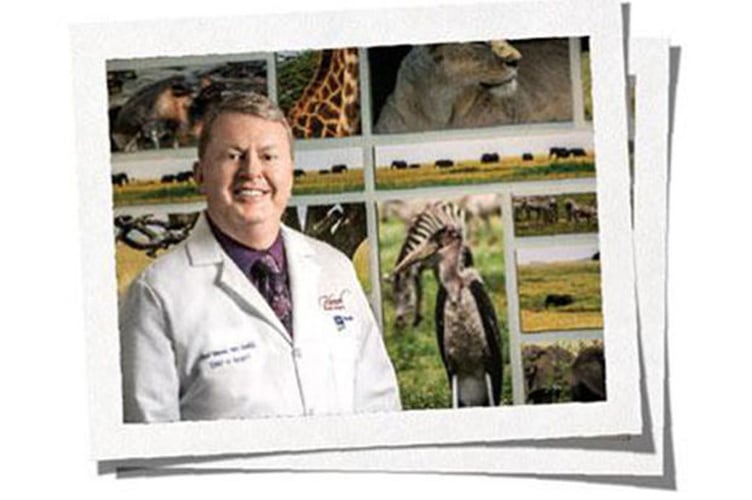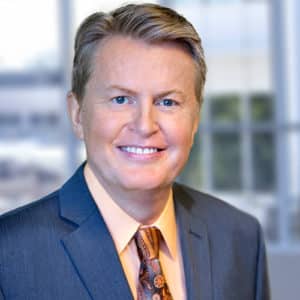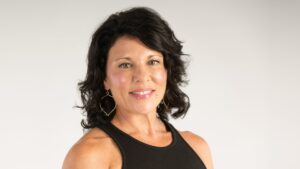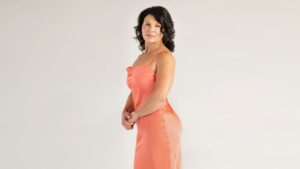PLASTIC SURGEON Paul Vanek, MD, FACS, was drawn to the field of medicine at a young age. When he was 8 years old his father suffered a traumatic brain injury, which gave Dr. Vanek a unique perspective on the care that physicians provide. “The doctors who took care of my father and comforted my mother really had that ability to make people feel better, even though it was a very out of control situation,” he recalls. “It was that experience that led me into medicine.”
Dr. Vanek worked as an emergency medical techncian while attending Haverford College in Pennsylvania. “I really loved trauma,” he says, noting that he became more engaged in the area during medical school at the University of Rochester in New York. He trained as a general surgeon and then entered a plastic surgery residency at the University of Michigan. “I was very interested in saving lives and patching up people who were traumatized—having an impact on their lives and reconstructing them.
“I worked in a level 1 trauma center in Rochester, and while I was training I got to see these magical people called plastic surgeons,” he continues. “They would go into a room with a patient who had some very serious problems, and they’d emerge 6 or 8 or 10 hours later, and the patient would be transformed.”
After completing his residency, Dr. Vanek joined the Lake Health System in Lake County, Ohio, where he practiced for one year before striking out on his own. “I always thought it would be best for me to be self-employed. The hospital facilitated me to get my practice going, and I opened Vanek Plastic Surgery in Mentor, Ohio, in 1997,” he says.
The Will To Thrive
An entrepreneur at heart, Dr. Vanek has owned or managed several businesses throughout his life, beginning with a paper route as a child. He worked as a contract trumpet player during high school, college and medical school; ran a landscaping business in high school and college; and founded his own medical billing company, HealthMaxx, in 2001, which he sold as a new attending in 2007 to focus on plastic surgery.
“When I was training to be a physician, I also did research at Columbia Presbyterian and New York University—I regularly had academic jobs at that time,” he says. “I’ve had other ventures along the way, but I always wanted to have practice autonomy. Even though I’m a collaborative soul, I knew I’d be best served if I was able to run my own business.”
The most challenging aspects of practice ownership have been keeping up with compliance issues and the day-to-day management of personnel. “Surgery is the fun and easy part of my day; the challenging part is the massive amount of compliance that goes along with being a physician in the U.S.—negotiating contracts with insurance companies, keeping up with the administrative state requirements of being an employer—as well as handling all the moving parts of a busy office,” says Dr. Vanek. “But I love it because of the relationships I’ve formed. I have people who have worked for me for 14 years—long-term employees who I value.”
He has found that retaining personnel requires more than just logistics and numbers, and he strives to nurture his staff emotionally as well as financially. “People come and go—they get married and divorced and move around, and the only way to keep them is to know what the market pays and compensate them well,” he says. “But you have to structure their bonuses emotionally too by recognizing holidays, being there for their kids, giving them time off and acknowledging their accomplishments. That’s not just economics; it’s the emotional side of the practice of medicine.”
In order to overcome compliance and business challenges, Dr. Vanek stays up to date with local and national plastic surgery societies, and participates in state politics. “Being involved politically means you keep yourself informed; you keep reading and you stay engaged and in contact with your legislators,” he says.
His advice for physicians entering the field is to find a surgeon-mentor who can help prepare them for business ownership. “Residency training is supposed to instill in you the principles of surgery; it doesn’t always foster the most optimal business practices that are required of a surgeon when he enters practice,” says Dr. Vanek. “Something new doctors may not know is that we have a young plastic surgeons section at the American Society of Plastic Surgeons (ASPS). There are certainly surgeons—like me—who are willing to be mentors.”
In order to provide the best care for his patients, Dr. Vanek is constantly on the lookout for new techniques and practices to incorporate into his surgeries as well. He reads the scientific literature, watches instructional videos, discusses the techniques with other practitioners, and attends courses and live demonstrations. “I may do an element of a new procedure and incorporate it into an existing procedure before I do the full-on new thing,” he says. “I find and integrate new techniques by watching masterful surgeons perform the procedures and going to educational symposia. I’ve learned something new every year I’ve been in practice.”
An Atmosphere Of Trust
When consulting with patients, Dr. Vanek’s approach is to educate and inform them every step of the way. “I prefer primarily to engage each patient Socratically: If they’re highly intelligent then you can be very detailed in terms of biochemistry and anatomy; if they’re not as educated, you have to make sure you’re sensitive to their intellectuality without being paternalistic,” he says. “You have to balance the science of your surgical education with the art of communication.”
He employs before and after photos of previous patients who presented with similar concerns, and favors frank disclosure about whether the patient’s issue is common or if a pictured solution may be more difficult to achieve due to unique concerns. “Part of our mission statement is, ‘We operate and fully communicate in an atmosphere of trust and respect, nurturing with love and compassion as we add the highest value to every patient,’” explains Dr. Vanek. “I’m a positive person, and I try to be very straightforward. I want to build patients’ self-esteem and enhance their internal and external beauty.
“Most people are realistic when I have to break the news that if, for example, they are 80 years old I can’t make them look 29,” he continues. “If it looks like they’re star struck by surgical intervention, I make sure to bring them back to earth and show them a range of examples of somebody with the same height, weight or ethnicity. I say, ‘Here’s where they are. If this will make you happy then we’ll move forward. If this isn’t enough, then you may need more than one operation, or you may need to start out from a different place.’”
He’s also comfortable saying no. “Sometimes the easiest way is to say, ‘I don’t think I have the skills necessary to bring you the outcome you want.’ I’m very comfortable with that answer,” says. Dr. Vanek, noting that at times he will even discourage a patient from seeking treatment elsewhere as they will eventually find someone who agrees to operate—but the patient is unlikely to be happy with the results.
If he suspects the patient has underlying psychological issues, Dr. Vanek will schedule a counseling appointment for her. “I’m not just going to say, ‘We’re not doing surgery,’” he says. “I tell them to come back and see me after they discuss things with a counselor in a couple of sessions.”
His strategy for achieving natural-looking outcomes is, “Don’t over do it. You must have a gentle hand and always remember that we can do a little more in the future,” he says.
Life In Motion
Outside the practice, Dr. Vanek manages to keep very busy. He has a wealth of hobbies that range from gardening to travel to creative pursuits. “I scuba dive, I grow orchids, I play trumpet in my church and in a rock band, I sing lead and backup in the same band, and I’m a cantor in my church,” he says. “I love art and photography. I’ve climbed Mount Kilimanjaro and gone on safaris too.”
Dr. Vanek and his wife travel regularly to visit their adult children, and the couple are very active in their church. “I’ve been chairman of the United Way in our county, and I continuously raise money for the Lake Hospital Foundation and through my church for various charities,” says Dr. Vanek. “My mother’s history of diabetes really has gotten me engaged in the diabetes and multiple sclerosis tours—those are long bike rides—which combine my own passion for physical activity with the idea that I can raise money for somebody else.”
After the earthquake in Haiti in 2010, Dr. Vanek joined Project Medishare and traveled to Haiti with $30,000 worth of drugs from Lake Health Hospital and a surgical team made up of an anesthesiologist and two volunteer nurses. “We brought our own instruments, medications and anesthesia,” he recalls. “We operated continuously in very poor conditions almost immediately after this terrible mass casualty. We collaborated with people from all over the world.
“Since then, I’ve participated in many other surgical missions,” continues Dr. Vanek. “Knowing that we are able to help people who have no resources has really changed my life. It made me recognize that an individual person with the will can make a difference.”
Laura Beliz is the associate editor of MedEsthetics. Original Article Here.
Photo by Cory Sorensen Photography





